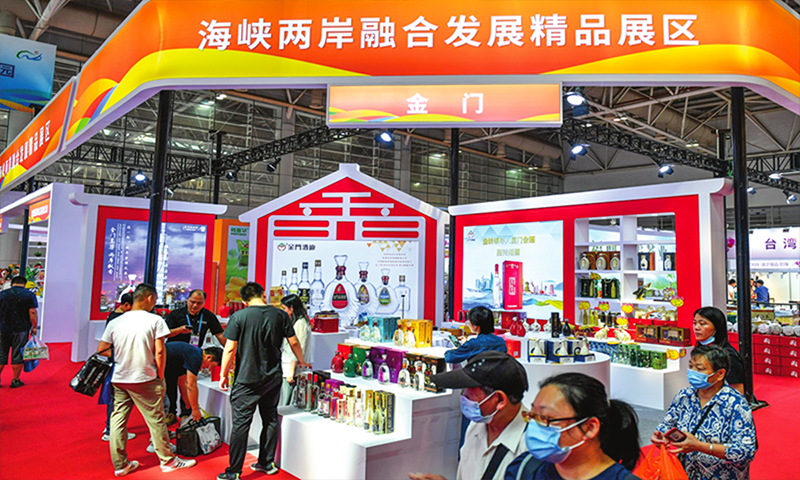Taiwan deputy regional leader Lai Ching-te’s “transit” in the US has added uncertainty to declining cross-Taiwan Straits trade, Chinese mainland experts said, noting the negative impact of Lai’s visit could draw an economic response from the Chinese mainland.
The “transit” by Lai in the US over the weekend has raised concerns among Taiwan compatriots doing business in the mainland.
“Lai’s so-called transit visit is a troublemaker for cross-Straits ties,” a Taiwan compatriot told the Global Times on Sunday on condition of anonymity. “The visit would do no good to peace and development, and the event will very likely have an impact on cross-Straits trade and investment ties.”
The Taiwan Affairs Office of the State Council, China’s cabinet, on Sunday expressed its strong opposition to Lai’s “transit” trip to the US, saying that the true purpose of Lai’s plan is to rely on Washington to pursue “Taiwan independence” and seek personal electoral gains.
The acts by the Taiwan secessionists are on the opposite side of mainstream opinion on the island that seeks peace, development, exchanges and cooperation, Zhu Fenglian, spokesperson for the Taiwan Affairs Office, said in a statement on Sunday, and Taiwan secessionists will ultimately push the island to war and bring disaster to the people on the island.
Slashing Lai as a complete “troublemaker”, the Chinese Foreign Ministry urged the US to stop any form of official relations with the Taiwan region, and stop encouragement of Taiwan secessionism and hollowing out of the one-China principle.
The ministry vowed to take forceful measures to safeguard China’s national sovereignty and territorial integrity.
Tang Yonghong, deputy director of the Taiwan Research Center at Xiamen University, told the Global Times on Sunday the “transit” by Lai in the US will have a new impact on China-US ties and cross-Straits relations.
“On account of the grave matter, some form of response in the economic field should be conceived by the Chinese mainland to hit the secessionist forces on the Taiwan island, in addition to military responses,” Tang said, pointing to the reliance of the island’s economy on the mainland.
Cross-Taiwan Straits trade has continued to shrink in recent months due to the overall economic environment as well as the Democratic Progressive Party (DPP) authorities’ policy of following the US-led, ill-intentioned containment against the Chinese mainland.
Trade between the mainland and Taiwan fell 23.2 percent year-on-year in the first seven months to $146.1 billion, customs data showed.
Last week, US President Joe Biden signed into law the US-Taiwan Initiative on 21st-Century Trade First Agreement Implementation Act, which is seen as the US’ pursuit of the China containment strategy by playing the “Taiwan card” and hollowing out the one-China principle under the guise of trade cooperation.
China’s Foreign Ministry on Thursday called on the US to revoke the so-called act.
(Global Times)




